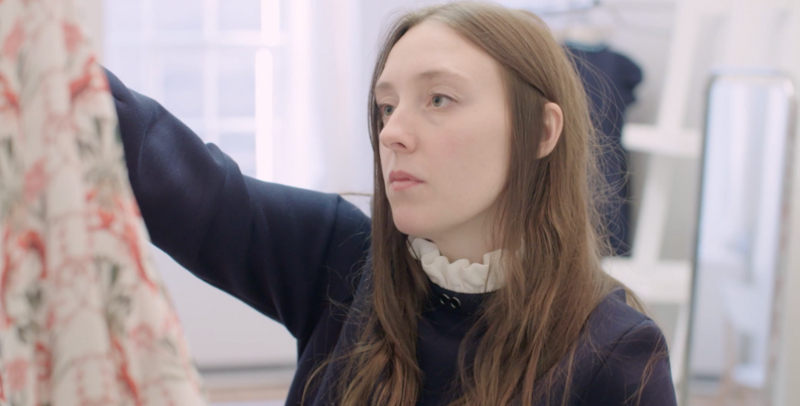Director – Becky Hutner – 2022 – UK – Cert. 12a – 100m
*****
A fledgling designer appalled by her industry’s environmental record attempts to do fashion sustainably – out in UK cinemas on Friday, March 3rd
The title put me off before I even knew anything about this documentary. On further investigation, however, its subject is up-and-coming fashion designer Amy Powney who decided, in the interests of sustainability, not to do fashion as fashion industry wisdom has always done it, but rather to find out if it was possible to do fashion in an environmentally sustainable way.
We are told that if the fashion industry were a country, it would be the world’s third biggest polluter, preceded only by the US and China. So clearly, this is an industry with a problem.
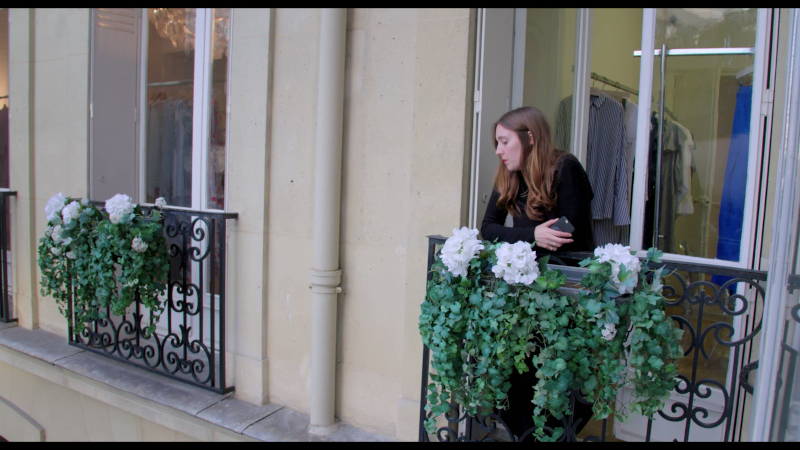
Amy had always wanted to design clothes. At Kingston University, studying fashion, she got hold of and read Naomi Klein’s anti-capitalist tract No Logo then felt herself increasingly at odds with the ethos of the course. Her background was a little different from most of the students: she grew up in the Lancashire countryside, off grid, on a farm with her sister and parents.
After college, she got a job sweeping the floor at small, indie UK fashion house Mother Of Pearl where she slowly but surely worked her way up to become first studio manager then the company’s creative director, clearly a very determined and driven young woman. She comes over well on camera as a likeable hero for our climate crisis beleaguered times.
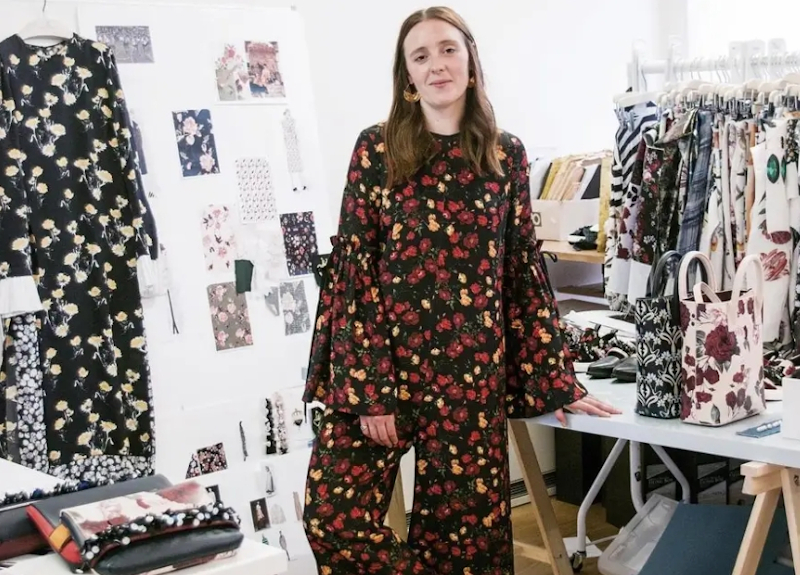
When she won the prestigious BFC / Vogue Fashion Fund award in 2017, the £200 000 prize enabled her to research and launch the company’s No Frills range. I say “enabled”, but so seemingly insurmountable are the objects she must overcome in order to achieve her goals that you constantly wonder whether her launch is going to succeed or fail. (There’s no discussion of the fact that the history of innovation is all too frequently one of people failing and failing again until they eventually succeed. Amy is a textbook example of this phenomenon.)
As the documentary tells Amy’s story, her aims start to come into focus. In terms of sustainable materials, synthetics are out because of their comparatively huge carbon footprint. The only ones that are eco-friendly enough to work with are wool and cotton, and even then it depends on what if any chemicals have been used in the farming process. The production of a garment in the way that the industry has always done it involves many, many countries, with goods shipped back and forth several times during the production process, upping the carbon footprint to a considerable degree.
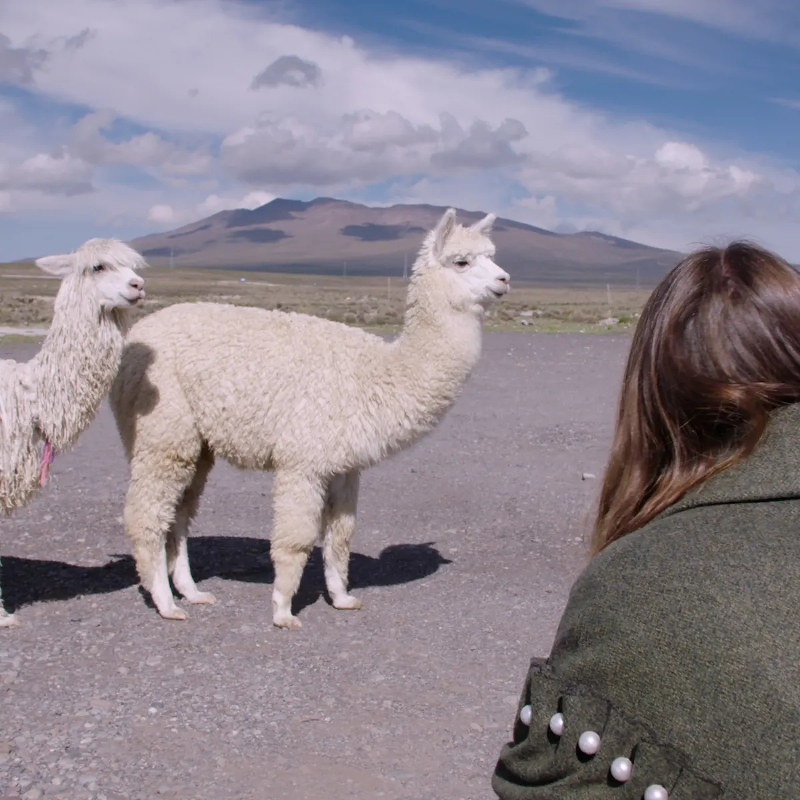
Most contemporary fashion houses, it seems, couldn’t describe their supply chains in any detail and can’t answer questions about such details, not even where the wool or cotton they use originally comes from. These are not questions those in the fashion business generally bother to ask.
Amy’s initial aim as a UK-based designer to do everything in the UK swiftly unravels with the discovery that there is only one suitable supplier of non-chemically-treated UK wool. Their small output is already spoken for by clients for years to come.
A visit to the industry’s fabric suppliers trade show in Paris reveals the shocking fact that the industry doesn’t think in terms of sustainability: there is no dedicated sustainable materials section.
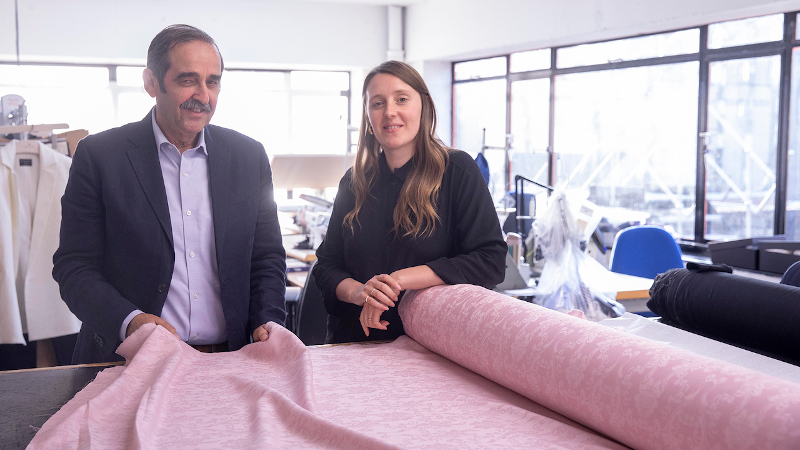
Undaunted, she somehow she discovers Uruguayan farmer Pedro and visits his farm to check that his produce meets her criteria. Then, she has to find other steps in the supply chain which don’t criss-cross the globe, as is the industry norm. Every step of the way seems to be a challenge, yet incredibly Amy takes it all in her stride, even when she appears to be trying to achieve Mission Impossible. Which, frankly, is most of the time.
Of all the industries that need rethinking and rebooting in the face of the current climate emergency, fashion as here presented is right at the top of the list. The fact that there are people like Amy out there not moaning about the situation but actively trying to find a different way of doing things to solve the industry’s problems in microcosm should give us all cause for hope.
That Hutner has not only chosen to make a film about her but has done so with considerable skill in and understanding of the medium is a further cause for celebration.
The result is a wake-up call for the coming eco-crisis, to sit down, rationally think through the problems in a specific area and then do something positive about them to move things in the right direction. Genuinely inspiring stuff which needs to be viewed as widely as possible.
Fashion Reimagined is out in cinemas in the UK on Friday, March 3rd.
Trailer:
